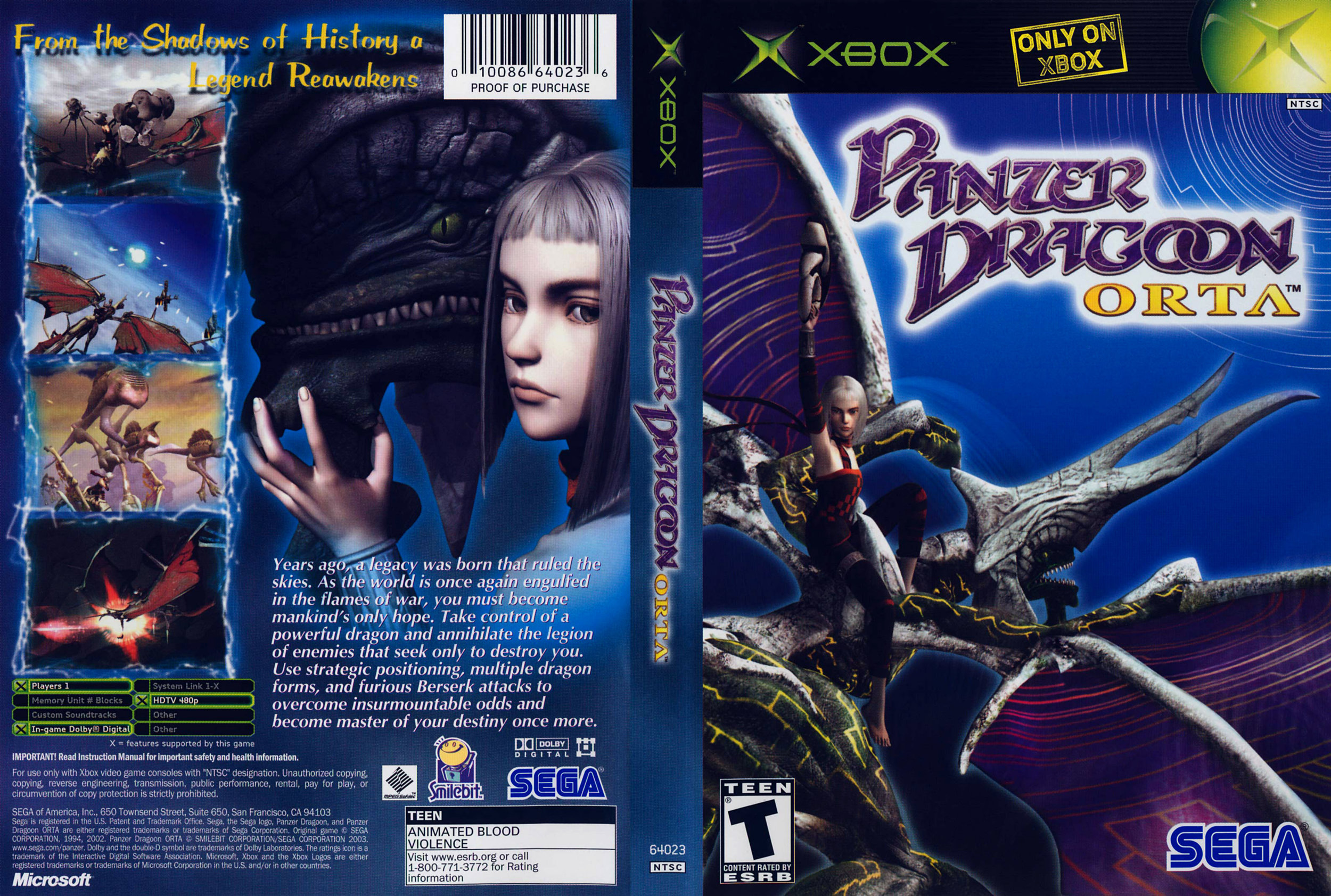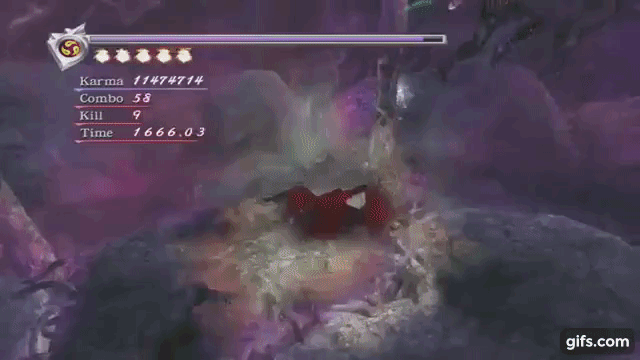Microsoft's setting sun: How the East was lost
Somewhere along the Xbox 360's meteoric rise and status as a household name in the mid-to-late 2000s, the platform cultivated a reputation as a haven for dude-bro shooter types. Deservedly or not, it's hard to argue that the 360 wasn't the perennial home for Maddens, Calls of Duty and, actually, most multi-platform fare in the previous console generation. But once upon a time, Microsoft's consoles were home to a generation of Japan's best and most obscure titles. And then, they very quickly weren't.
Panzer Dragoon Orta is perhaps the most criminally underrated game in the original Xbox's catalog.
Ninja Gaiden forms a triumvirate with Devil May Cry 3 and Bayonetta 2 as the best character-action games of all time.
Jet Set Radio Future is style incarnate.
Dawn: The Xbox
Panzer Dragoon Orta was a technical marvel in 2002.
Microsoft always had an uphill battle ahead of them. But thanks to some quirky messaging, a big push from the man himself, Bill Gates, and several key partnerships with Japanese developers, the Xbox survived, even if it didn't thrive. Acclaimed Sega division Smilebit delivered a trio of games--Panzer Dragoon Orta, Gunvalkyrie and Jet Set Radio Future--that briefly made the Xbox seem like the unlikely successor to the ill-fated Dreamcast. More Japanese hits followed in the form of Phantom Dust, Ninja Gaiden, Steel Battalion and its $200 controller, Dead or Alive 3 (the Xbox's best-selling game in Japan) and others. When all was said and done, the Xbox sold about half a million units in Japan by the time its production run ended. It struggled against consoles from the prior generation; even the PlayStation (you read that correctly; the PS1) regularly outsold the Xbox. Blame the cultural differences, marketing as unwieldy as the 17-pound original "Duke" controller or any other factors, but the platform and its strong Japanese software lineup deserved a better fate.
The Japan-only Blue Dragon special edition Xbox 360 sold out almost immediately. Blue Dragon itself, the first offering from Mistwalker Studios, moved more than 200,000 units in short order.
Noon: The Xbox 360
Microsoft doubled down on its investment in the East with its next console, the Xbox 360. After enjoying runaway success in the Americas and Europe, thanks in no small part to its suite of Xbox LIVE innovations and Sony's constant self-handicapping in its first two years, Microsoft found itself in a position to increase their Japanese market share. The biggest reason, though, was legendary Final Fantasy creator Hironobu Sakaguchi and his new team, Mistwalker Studios, who delivered a pair of the 360's most notable exclusives--Blue Dragon and Lost Odyssey. Tales of Vesperia, often considered among the best games in its franchise, is arguably the best of the 360's exclusive RPG bunch. (It certainly wasn't Infinite Undiscovery.) Curiously, the Xbox 360 saw ports of several franchises previously exclusive to Sony's consoles, like Tekken, Final Fantasy and Devil May Cry. Lifetime Japanese sales for the Xbox 360 hit 1.5 million units, a noticeable upgrade from the original Xbox.
The Xbox One has sold poorly by every metric in Japan. Pictured here is both the back and front of a line on launch day, courtesy of @kaztsu.
Dusk: The Xbox One
For those keeping track at home, this is the dark third act where everything spirals out of control. The Xbox One has sold like AIDS in Japan, an ineloquent way of saying no one wants it. There was a week during January 2016 in which the Xbox One sold NINETY-NINE units in Japan. To put that in perspective, the Wii U, largely regarded as a commercial failure even in Japan, sold 15,000 units that same week. So what happened?
It's not all Microsoft's fault. The Japanese industry entered a bit of a creative recession for a handful of years. Japan's global market share had shrunk from nearly 50 percent in 2002 to 10 percent in 2010. One could point to Western trend-chasing, which resulted in just as many misses (Devil's Third) as hits (Vanquish). Japan played a role in the Xbox One's lineup from launch, but almost all efforts fell flat. Crimson Dragon was Panzer Dragoon's rotting carcass. D4: Dark Dreams Don't Die, did in fact die, and subsequent episodes of the game were cancelled. Two of the Xbox One's highest-profile cancellations, Scalebound and the successor to Phantom Dust, were Japanese titles.
When Japan came roaring back in 2016-17, few were less prepared to react than Microsoft. In 2017 alone, we saw Resident Evil 7, Yakuza 0 and Yakuza Kiwami, Persona 5, Gravity Rush 2, NieR Automata and Nioh. Of those, only RE7 found its way to the Xbox One. In fact, even Japanese games that once found their way to Microsoft platforms like Catherine are disappearing; Catherine: Full Body, a remake of the delightfully difficult and weird 2011 puzzler from the Persona team, Studio Zero, will only be coming to PS4 and Vita.
Phil Spencer, Microsoft's executive vice president of gaming, said that he hasn't given up on the Japanese market Wednesday during his annual chat with Jeff Gerstmann on Giant Bomb's night show. He's hoping to leverage services like the Xbox Game Pass to attract Japanese developers, likening the system to Netflix adding foreign films in the hopes of reaching a wider global audience. I believe him. I just don't know that Japan does.
Long live Japan.











